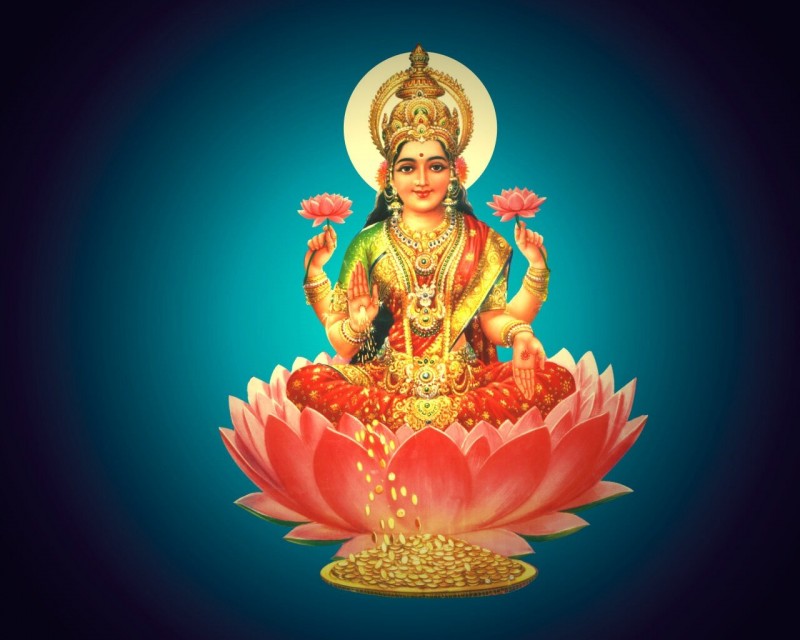
In the rich tapestry of Hindu mythology, Goddess Lakshmi holds a revered and central position as the goddess of wealth, prosperity, and abundance. Often depicted as a radiant and benevolent deity, she embodies the essence of fortune and auspiciousness. Devotees across the world seek her blessings to attain material and spiritual prosperity. Goddess Lakshmi, the bestower of wealth and prosperity, occupies a place of great significance in Hindu mythology and culture. Her divine attributes of material abundance and spiritual growth make her an embodiment of the ideal balance between worldly success and inner contentment. As devotees seek her blessings, they are reminded of the importance of using wealth responsibly, cultivating compassion, and embracing the path of righteousness. Goddess Lakshmi's grace remains an eternal source of inspiration, guiding countless souls on their journey towards a life of prosperity, harmony, and spiritual fulfillment.
According to Hindu mythology, Goddess Lakshmi is believed to be an eternal consort of Lord Vishnu, the preserver of the universe. Her divine origin is narrated in various sacred texts and Puranas. The most well-known legend describes her emergence during the churning of the cosmic ocean, known as the "Samudra Manthan." When the Devas (celestial beings) and Asuras (demons) churned the ocean to obtain the nectar of immortality, Goddess Lakshmi emerged from the milky ocean holding a lotus in her hand, radiating beauty and grace. Goddess Lakshmi is revered for her divine attributes, representing both material and spiritual wealth. In her iconography, she is depicted adorned with resplendent jewelry, seated on a fully blossomed lotus, which symbolizes purity and transcendence. She is often shown with four arms, each bearing significant symbols, such as a lotus, a pot of gold, and gestures of blessing and fearlessness.
As the goddess of wealth, she bestows prosperity upon her devotees and blesses them with abundance and success in their endeavors. Beyond material riches, she also represents spiritual prosperity, inner peace, and enlightenment. Her association with lotus flowers signifies the blossoming of one's consciousness and the rise from the muddy waters of material existence towards spiritual enlightenment. Goddess Lakshmi is venerated across various festivals and rituals in Hindu culture. During the festival of Diwali, which is one of the most widely celebrated festivals in India, people offer prayers to Goddess Lakshmi, seeking her blessings for wealth, prosperity, and happiness in the upcoming year. It is believed that on Diwali night, Lakshmi visits homes that are clean, well-lit, and where prayers are offered with devotion. In temples dedicated to Lord Vishnu, she is always depicted by his side, signifying her inseparable connection with the preserver of the universe. Additionally, Goddess Lakshmi is also worshipped as the consort of other deities, such as Lord Ganesha (the remover of obstacles) and Lord Kubera (the treasurer of the gods), emphasizing her role as the harbinger of prosperity and wealth.
Devotees perform special pujas (rituals) dedicated to Goddess Lakshmi to seek her blessings and grace. During these pujas, lamps are lit, incense is offered, and devotional hymns are chanted to invoke her presence. It is believed that sincere devotion to Goddess Lakshmi fosters humility, generosity, and a sense of responsibility to use wealth for the greater good of society.
Also read - The Enigmatic Nature of Shiva: Unraveling the Mysteries of the Supreme Deity